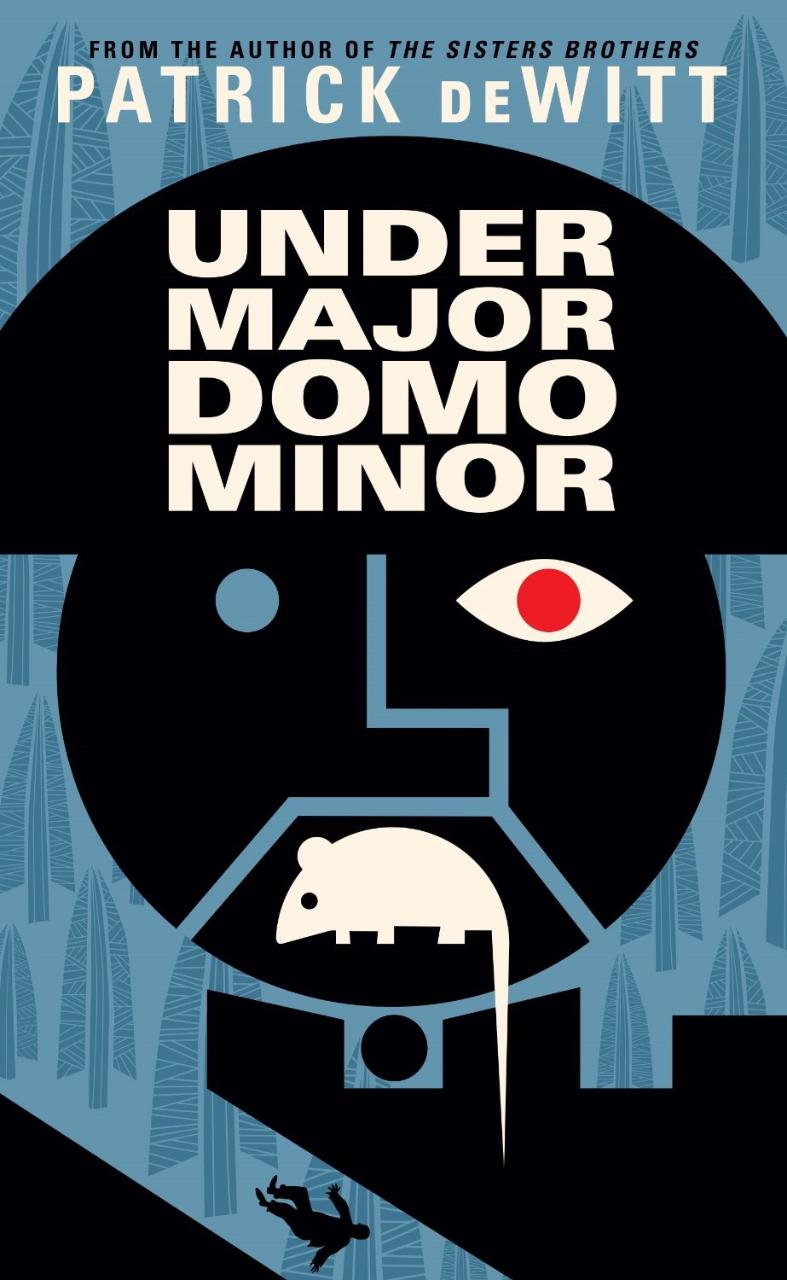Undermajordomo Minor is the new novel by Canadian author Patrick deWitt, who is best known as the writer of The Man Booker Prize nominated The Sisters Brothers, a strange and skewed (and surprisingly heartfelt) reinvention of the Western. The new novel takes some of the elements of The Sisters Brothers (particularly the dry and deadpan elements) and transplants them into a strange, faraway land.
I’m loathed to call it a fairytale for the lack of magical goings on, but there’s an olden-days kind of feel in a setting that is quite unlike any actual days of yore. Things are oddly surreal but not impossibly so, with a cast of characters who are either losing their marbles or angling at somebody else’s. This is a land where comedy and eccentricity replace principles, so anyone looking for explicit take-home morals are advised to look elsewhere. As are those who come expecting rainbows and pots of gold, because while there is True Love here it doesn’t last forever and forces people into doing some pretty bad things. That said, while lots of reviews emphasize the darkness of the story, things are more the sickly green of peculiar than pitch-black horror (at least if you discount one particularly outrageous dinner party scene).
The tale centres on Lucien Minor (herein Lucy), a small and sad young man who leaves his quiet and unloving village home for a job in the castle of Baron von Aux. Lucy is an unusual character in that he is clearly naive and downtrodden, but also prone to dishonesty and misplaced bravado (often to predictably disastrous effect). In some passages he brings to mind John Kennedy Toole’s Ignatius J. Reilly, although in a vague, indefinable way, because as a character he’s in a different mould altogether. It’s not hard to forgive his foibles however, as the boy has very little going for him in his life, indeed poor Lucy’s plight is apparent from the very first line of the story. “Lucien Minor’s mother had not wept,” writes deWitt “had not come close to weeping at their parting.” Unwanted by his family, and humiliated by the closest thing he has to a sweetheart, Lucy enlists the help of a local priest and eventually finds a job as the ambiguously titled “under-majordomo” at the Baron’s estate situated in a remote mountain range. A decision which triggers numerous things in Lucy’s story. As the story describes:
“[Lucy taking the job] Led to many things, including but not limited to true love, bitterest heartbreak, bright-white terror of the spirit, and an acute homicidal impulse.”
Things don’t get any easier once Lucy arrives at his new home, where he is greeted by his eccentric superior Mr Olderglough, a pair of sneaky thieves, a garrison of trigger-happy soldiers, mere whispers of the mysterious and absent Baron and something that stalks the halls of the castle at night. Oh, and he also falls in love, but you’ll have to read the book to find out about that. The rest of the story consists of the reader making tentative steps alongside Lucy, finding things out as he does, and learning that the castle and surrounding area is even stranger (and more dangerous) than it seems at the outset.
The tone of the novel is a curious one. The whole thing has a sly, droll undertone which is (paradoxically) conveyed in the earnest naivete of the characters. Any grand melodrama is played for laughs (or at least wry smiles), and the dialogue subverts the classic gothic fairytale tropes, where even the most stilted, overly formal lines having a whipcrack sharpness, a very modern knowing. That’s not to say that this is a satire – I’m not sure deWitt makes fun of a single character in the book. Instead, each character’s eccentricities are displayed with straight-faced sincerity, giving the sense that every one of them thinks themselves ‘normal’ amongst a cast of oddballs. It’s drily funny too, particularly during the exchanges between Lucy and the array of quirks, cranks and kooks he encounters. Take for example this passage in which Lucy is questioned by a young lady as leaves his home town:
“Are you going somewhere?”
“Yes” he said. “I’ve been summoned to the Castle Von Aux. Likely you’ve heard of it?”
“I haven’t.”
“Are you certain? It’s in the east, the high mountains – a very picturesque location, they say.”
“I’ve never heard of it Lucy. What will you be doing in thus very famous and picturesque castle?”
“I’m to be the undermajordomo.”
“What’s that?”
“It’s akin to majordomo, more or less.”
“It sounds to be less.”
“I will be working in concert with him.”
“Beneath him, that’s what it sounds like.”
But of course this is literary fiction and not merely a simple fairytale. deWitt finds a way to slip in comment on a variety of things, some conspicuous and some far more subtle. The most obvious example is the reference to the men with guns and bayonets which roam the hills around the town, which leave the reader with little doubt as to how the author feels about war:
“Those are people up there”
“Ah yes” said Memel.
“What are they doing?”
“Wasting their time.”
“Wasting their time doing what?”
“Playing a silly game.”
“And what is the point of the game?”
“To kill but not be killed oneself.”
Add to that ruminations on authority, love and loss, plus losing one’s way inside one’s self, and you can see how the novel’s seemingly slim premise is in fact hiding something more substantial. One thing that is impossible to dispute, it’s quite unlike anything else you’ll read this year.
Undermajordomo Minor is released on the 3rd of September on Granta Books.


